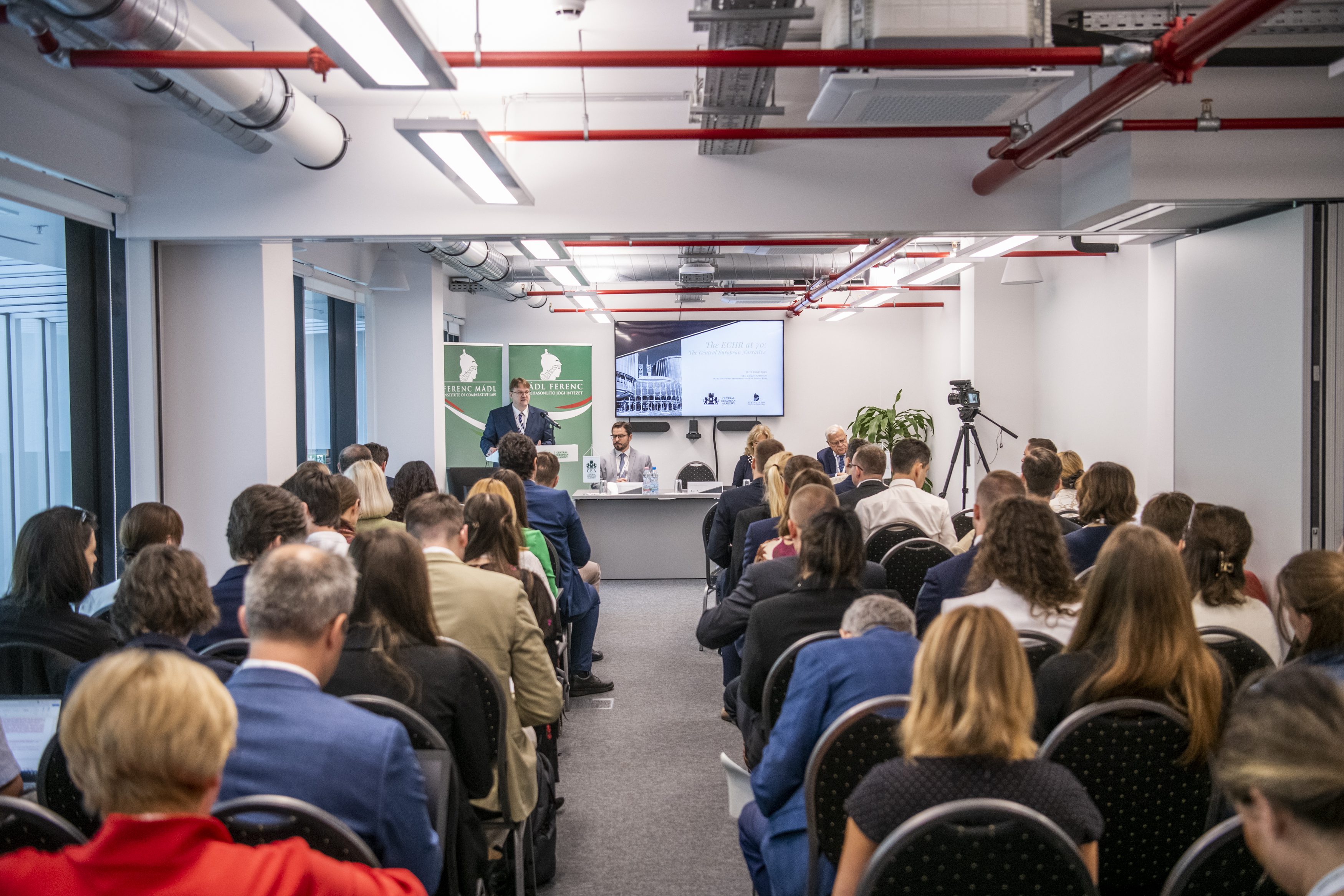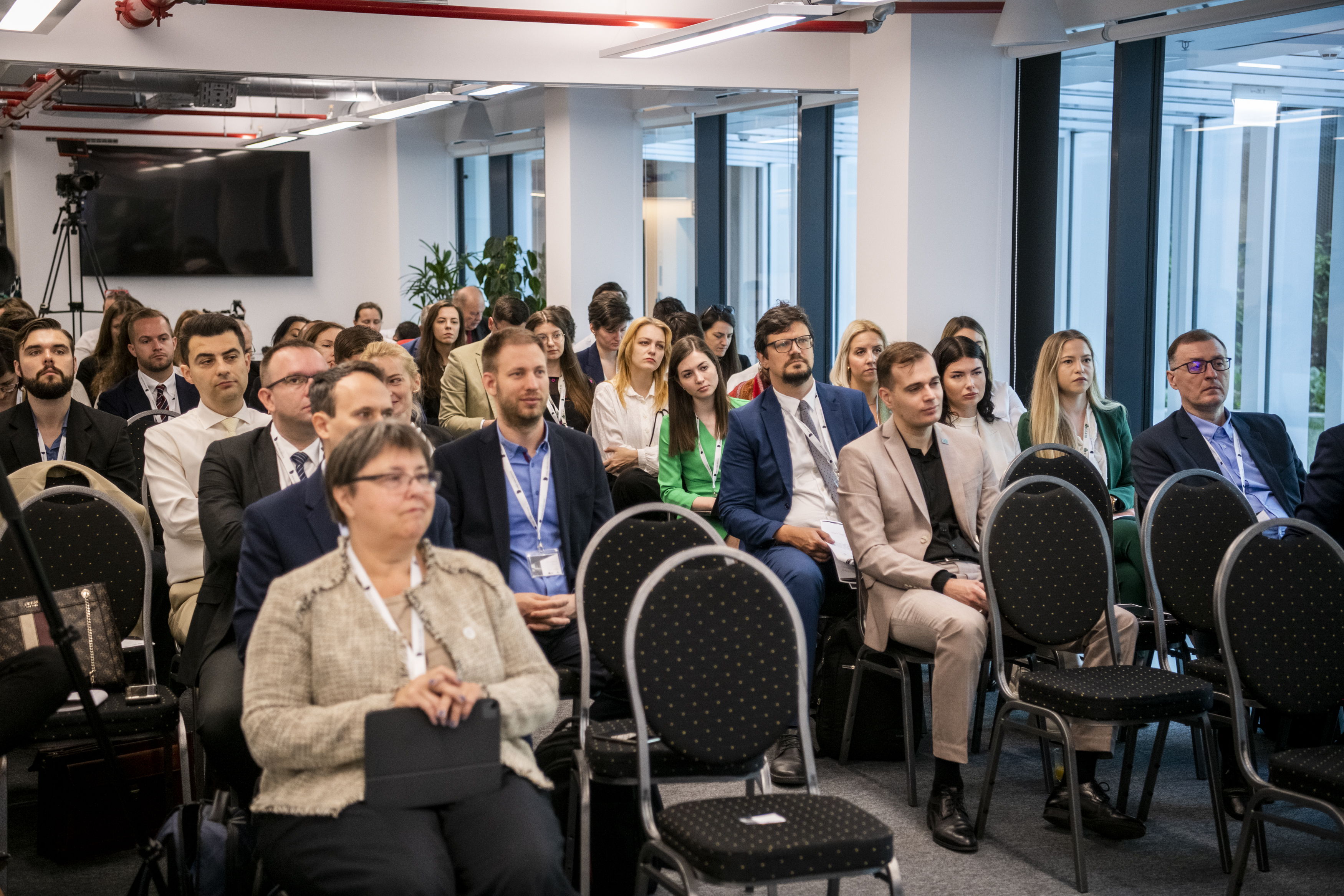The ECHR at 70: The Central European Narrative
date: 15 June 2023 - 16 June 2023
location: Major Udvar Office Building, CEA Diósgyőr auditorium, (HU-1122 Budapest, Városmajor utca 12-14.)
presenters: Prof. Dr. Tímea Barzó, Prof. Dr. Pawel Czubik, Prof. Dr. Davor Derenčinović, Prof. Dr. Péter Paczolay, Prof. Dr. Paweł Sobczyk, Katarína Šmigová, Lilla Berkes, Nóra Béres, Barbara Janusz-Pohl, Anna-Maria Getoš Kalac, Jasna Omejec, Lilla Garayová, Ede János Szilágyi, Elisabeth Sándor-Szalay, Prof. Dr. Bercea Raluca, Franka Viljac Herceg, Katarzyna Zombory, Dalibor Dukić, János Szinek, Bojan Tubić, Attila Horváth, Nataša Plavšić, Emőd Veress, Renáta Hrecska-Kovács
moderators: Ede János Szilágyi, Horváth Attila, Nóra Béres, Anikó Raisz, Renáta Hrecska-Kovács, Katarzyna Zombory, György Marinkás
themes: The ECHR in State of Emergency; Substantive Criminal Law Aspects of Human Rights; The ‘Umbrella’ of the ECtHR: The Right to Respect for Private Life; Due Process and Effective Remedy under the ECHR; Individual vs. Society (Part 1): The Freedom of Thought, Conscience, Religion, Expression, Assembly, Association, and Right to Free Elections; Individual vs. Society (Part 2): Protection of Property and Human Rights in Employment
To mark the 70th anniversary of the entry into force of the European Convention on Human Rights (ECHR), the Central European Academy and the Ferenc Mádl Institute of Comparative Law are organizing a scientific international conference in Budapest on 2023. 15-16 June 2023 on “The ECHR at 70: The Central European Narrative“.
The ECHR entered into force on 3 September 1953, and since then, Europe has gone through countless changes and faced scores of challenges: Environmental problems, the changes of regime in post-socialist States, the conquest of the internet, migration, the COVID-19 pandemic, the Russian-Ukrainian war etc. No wonder, in the era of ever evolving societies, one might easily raise the question: How can a 70-year-old convention provide effective protection for human rights and how can it still work as a living instrument? The aim of the conference is to demonstrate the indisputable reactivity and modernity of the ECHR putting an emphasis on the ECtHR’s interpretation techniques and focusing on Central European countries (i.e. the Czech Republic, Croatia, Hungary, Poland, Romania, Serbia, the Slovak Republic and Slovenia).





On the occasion of the 70th anniversary of the entry into force of the European Convention on Human Rights, the Central European Academy (CEA), together with the Ferenc Mádl Institute for Comparative Law (MFI), organized an international academic conference entitled "The ECHR at 70: the Central European Narrative" at the CEA headquarters in Budapest on 15-16 June 2023.
The aim of the conference was to illustrate the undisputed responsiveness and modernity of the Convention and to focus on the interpretative methods of the European Court of Human Rights, focusing on Central European countries (i.e., the Czech Republic, Croatia, Hungary, Poland, Romania, Serbia, the Slovak Republic and Slovenia).
The participants were welcomed by Dr. Róbert Répássy, Parliamentary Secretary of State of the Ministry of Justice and Prof. Dr. Tímea Barzó, Director-General of the CEA and Full Professor of the Department of Civil Law of our Faculty. The opening speeches were delivered by Prof. Dr. Péter Paczolay, Judge of the European Court of Human Rights, Prof. Dr. Erzsébet Sándor-Szalay, Deputy Commissioner for Fundamental Rights, Ombudsman for the Rights of National Minorities in Hungary, Prof. Dr. Paweł Czubik, Judge of the Polish Supreme Court and Dr. Zoltán Tallódi, Head of the Human Rights Department of the Ministry of Justice of Hungary.
Numerous professors and PhD students of our Faculty gave academic presentations at the event: Prof. Dr. Emőd Veress (Department of Commercial Law) on Central European restitution cases, Dr. Nóra Béres (Department of International and Comparative Law) on the human rights aspects of compulsory vaccination, while Dr. János Szinek (Deák Ferenc Doctoral School of Law and Political Sciences) discussed the online aspects of freedom of expression. In addition, Prof. Dr. János Ede Szilágyi (Department of Agricultural and Labour Law), Head of the MFI, Dr. Anikó Raisz (Department of International and Comparative Law), Secretary of State for the Environment and Circular Economy at the Ministry of Technology and Industry, and Dr. György Marinkás (Department of European and Private International Law) contributed to the lively academic discussions as moderators.
The conference highlighted the dominant role of the Convention in the Central European human rights discourse and its unique function in regional human rights protection.
